Loyalty-Driven B2B Commerce Platform
Embed loyalty mechanics directly into your B2B customers’ digital ordering journeys — to accelerate adoption, boost engagement, and increase order frequency, order accuracy, and basket value.




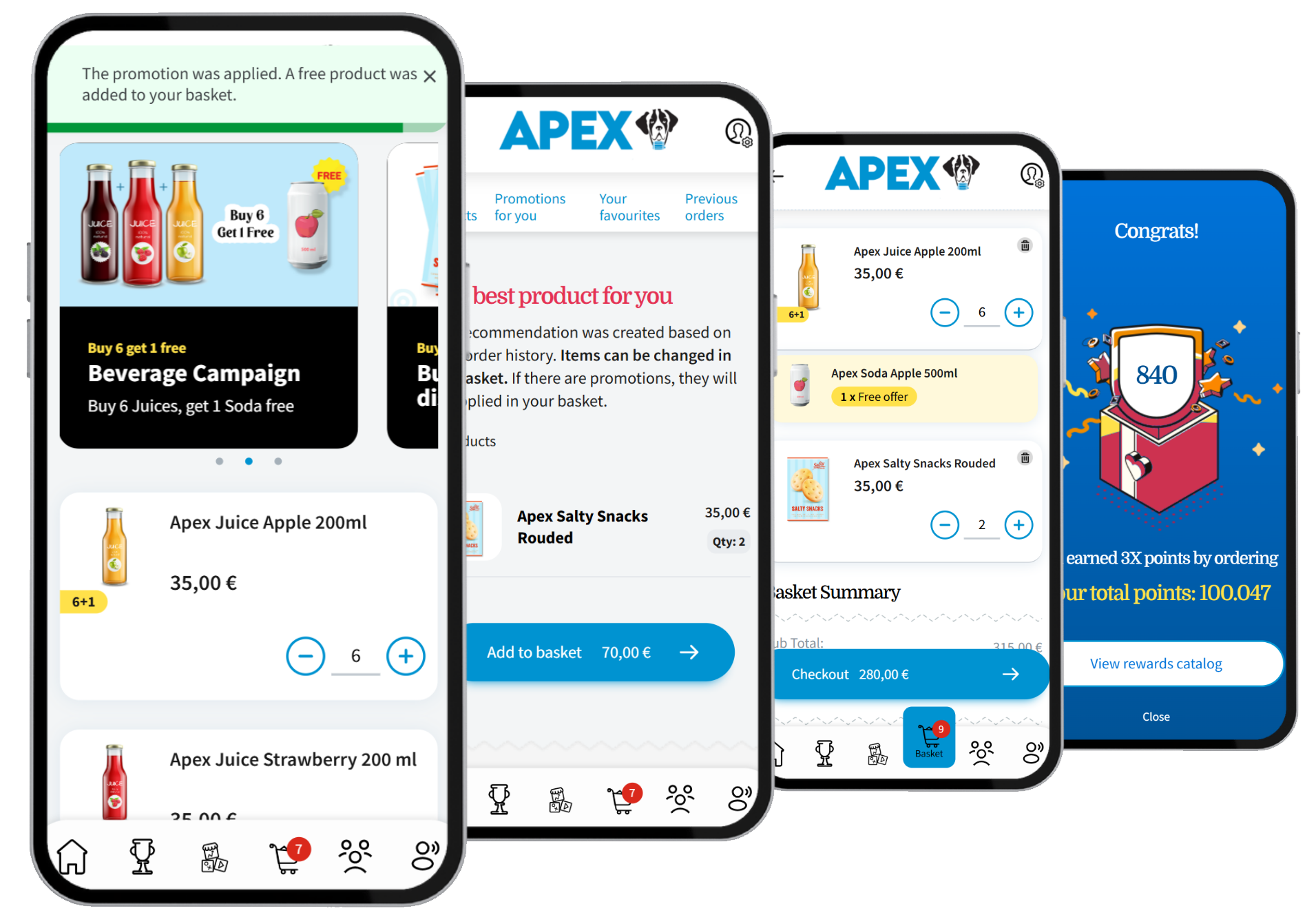






Why Apex Loyalty for B2B Commerce?

-
Feature-complete yet fully customizable
Full B2B feature coverage with no limitations to extend and customize.
-
Powered by Incentivization & Loyalty
Incentivize user adoption, drive repeat orders, and set customer specific purchase targets that turn every transaction into growth.
-
Flexible Promotion Engine
Execute your existing offline promotions & add digital campaigns to enhance shopping experience.
-
Cross-Market Scalability
Designed for global scalability—supporting multiple countries, languages, and currencies on a single platform.
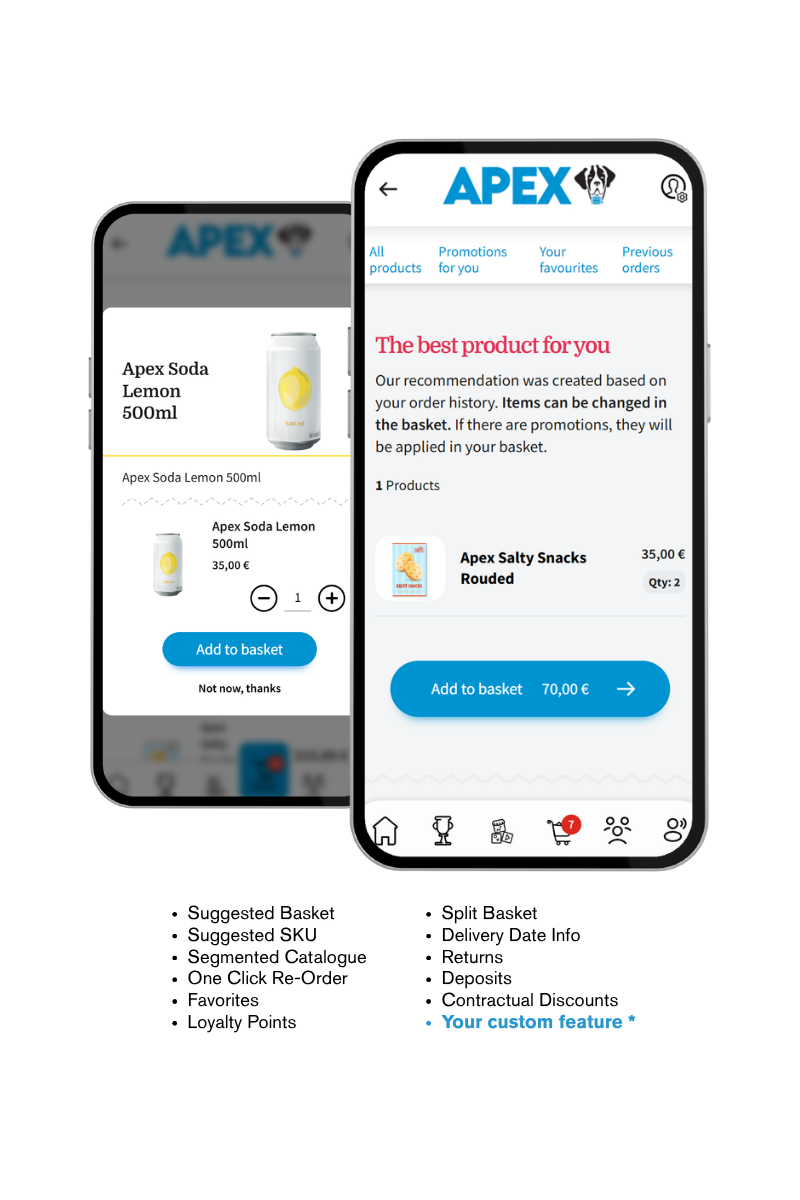
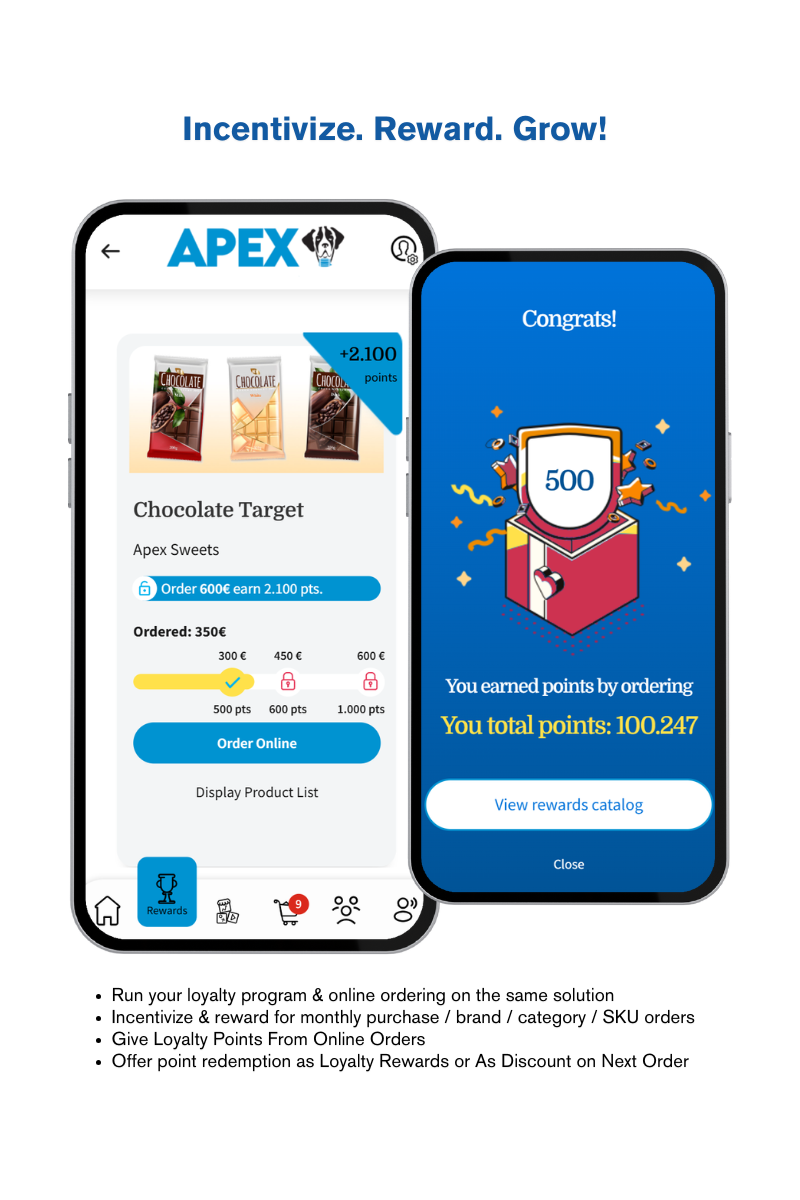
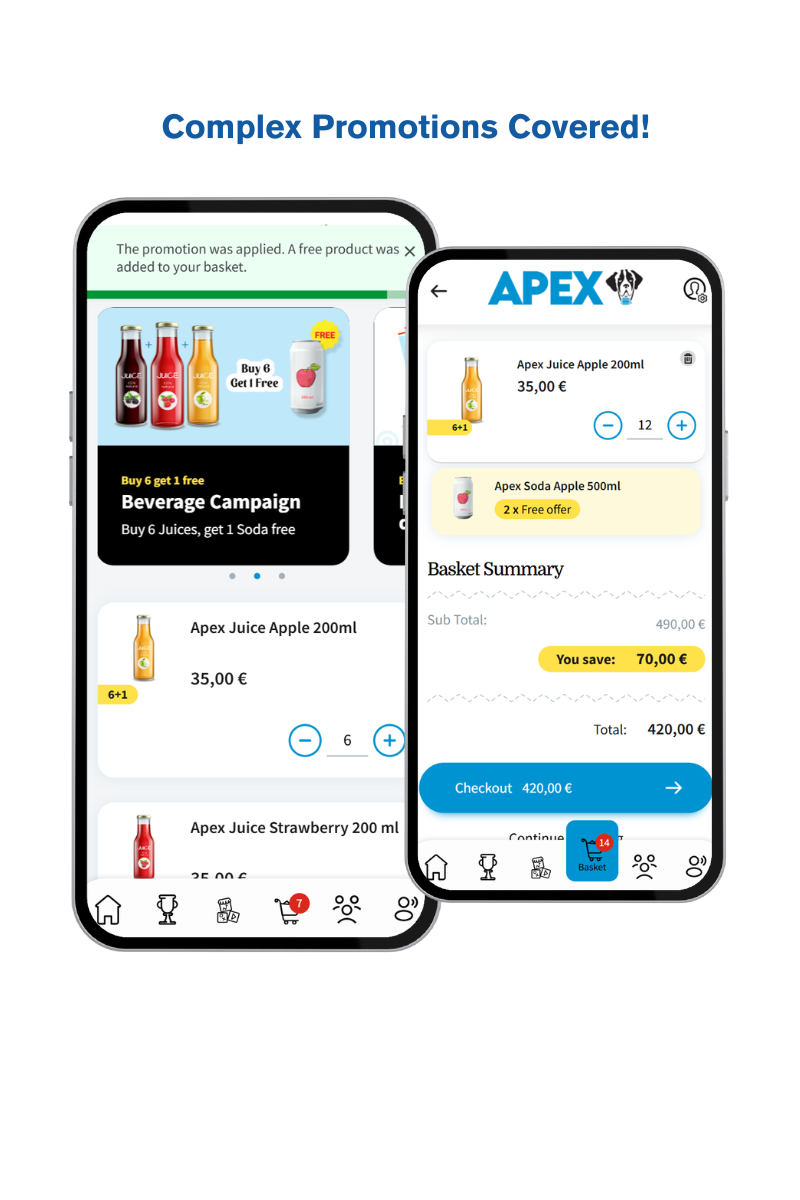
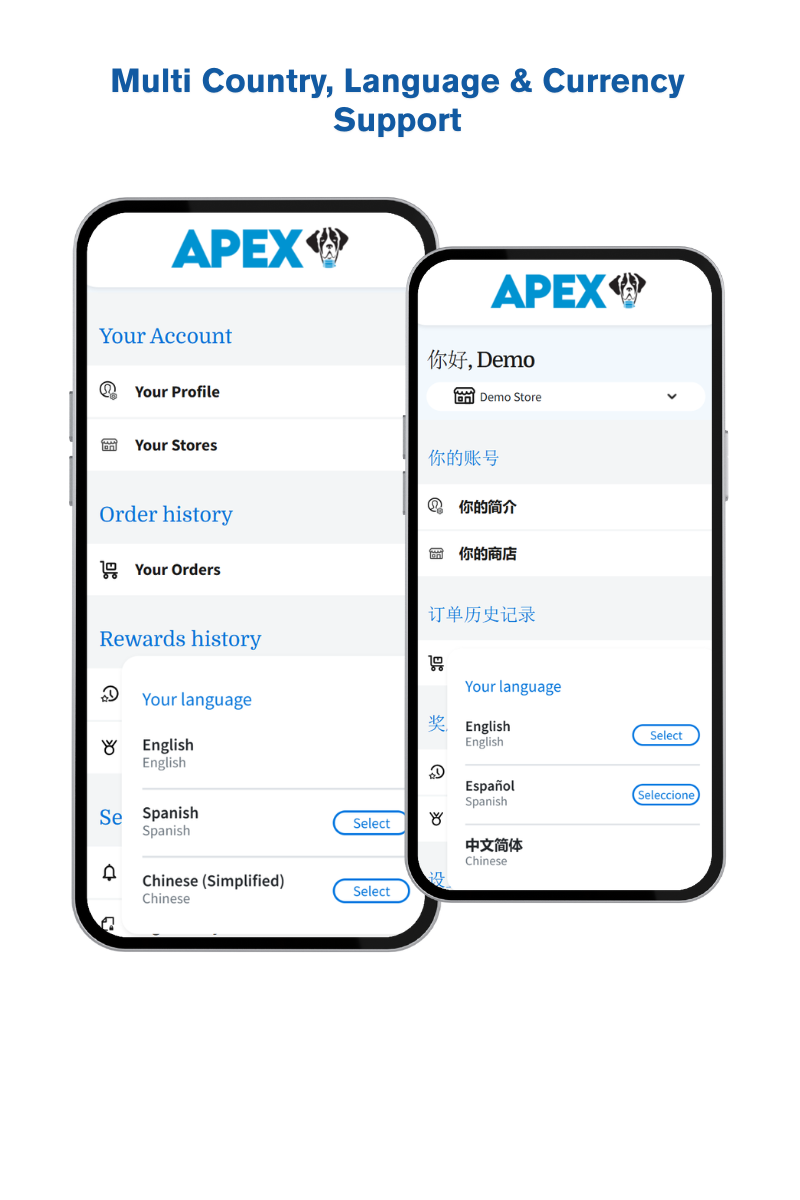
Incentivize the right behaviors, right where orders happen.
Seamless Integrations
Our growing list of API's helps you connect with your customers through various touch-points or can help you integrate back-end systems like CMS, PMI, IdM, ERP, SFA to streamline your internal or external processes.





Seamless Integrations
Our growing list of API's helps you connect with your customers through various touch-points or can help you integrate back-end systems like CMS, PMI, IdM, ERP, SFA to streamline your internal or external processes.






Apex Loyalty is built on the trusted and scalable Salesforce Cloud. Whether Salesforce is part of your tech stack or not, Apex can be quickly implemented as a turnkey solution.
See Loyalty-driven B2B commerce platform in action
APEX Loyalty maximizes on-trade activation to elevate your business to its apex.
eB2B (B2B Digital Commerce) – Frequently Asked Questions
1️⃣ What is B2B Online Ordering (eB2B)?
eB2B, also known as B2B Online Ordering, is a branded digital ordering platform (not a marketplace) that enables businesses to place orders directly with their suppliers, manufacturers, or distributors through an online portal or mobile app. It streamlines procurement, reduces manual processes, and improves efficiency for both buyers and sellers in the B2B ecosystem.
2️⃣ How does an eB2B platform benefit businesses?
eB2B (B2B Digital Ordering) platforms offer multiple benefits:
Faster order processing and reduced errors
24/7 self-service access for buyers
Improved pricing transparency and real-time stock availability
Automated promotions and discounts for bulk orders
Data-driven insights for smarter inventory and sales planning
3️⃣ Who uses eB2B platforms?
eB2B solutions are used by:
Distributors and wholesalers selling to retailers, pharmacies, or restaurants
- Brands selling to distributors, wholesalers or retailers.
Manufacturers managing dealer and reseller networks
FMCG brands selling to small retailers, pet shops, or mom-and-pop stores
Hospitality and HoReCa suppliers serving hotels, cafes, and restaurants
4️⃣ What features should I look for in an eB2B platform?
A robust eB2B platform should include:
User-friendly online ordering interface
Mobile app for on-the-go access
- Customer-specific bulk purchase target & rewarding capabilities
- Incentive Automation
Real-time inventory visibility
Real-time credit line check
Flexible pricing and discount management
Advanced Promotion Management
Order history and reordering capabilities
Suggested Baskets
Suggested SKU’s
Multi-tiered user permissions and roles
Integration with SFA, ERP, CRM, and accounting systems
- Loyalty & Gamification aspects to drive adoption & repeat usage
5️⃣ How is eB2B different from a B2C e-commerce site?
While both facilitate online sales, eB2B platforms cater to business/channel buyers, not end consumers.
Key differences include:
Bulk and recurring orders vs. individual purchases
Custom contractual pricing and credit terms for each buyer
- Authorized SKU’s / Segmented Catalog Offering
Complex workflows like approvals, POs, and contract pricing
- Sales Rep ordering / approval processes
Integration with SFA and back-office systems
6️⃣ Can an eB2B platform support loyalty and incentive programs?
Yes!
Modern eB2B platforms often include B2B loyalty features like customer-specific puchase targets, incentive automation, points-based rewards, tiered discounts, and cashback programs.
This helps incentivize repeat purchases, improve buyer retention, and reward customers for both transactional and non-transactional behaviors (like attending webinars or submitting feedback).
7️⃣ What are the best practices for launching an eB2B solution?
Understand your buyers’ needs and tailor the user experience
Simplify onboarding with clear tutorials and customer support
Integrate with existing systems like SFA, ERP and CRM for seamless operations
Offer mobile access to cater to on-the-go buyers
Leverage data analytics for continuous optimization
Promote your eB2B portal through marketing campaigns and distributor communication
- Incorporate incentives, gamification & loyalty aspects to accelarate user adoption & to create attractive reasons to switch to the new digital ordering platform.
8️⃣ Is eB2B the future of B2B sales?
Absolutely.
As digital transformation accelerates, eB2B is becoming the standard for efficient, scalable, and customer-centric B2B commerce.
Businesses that adopt eB2B platforms can gain a competitive edge by streamlining operations, improving buyer engagement, and unlocking new revenue opportunities.
About Apex Loyalty
Resources
